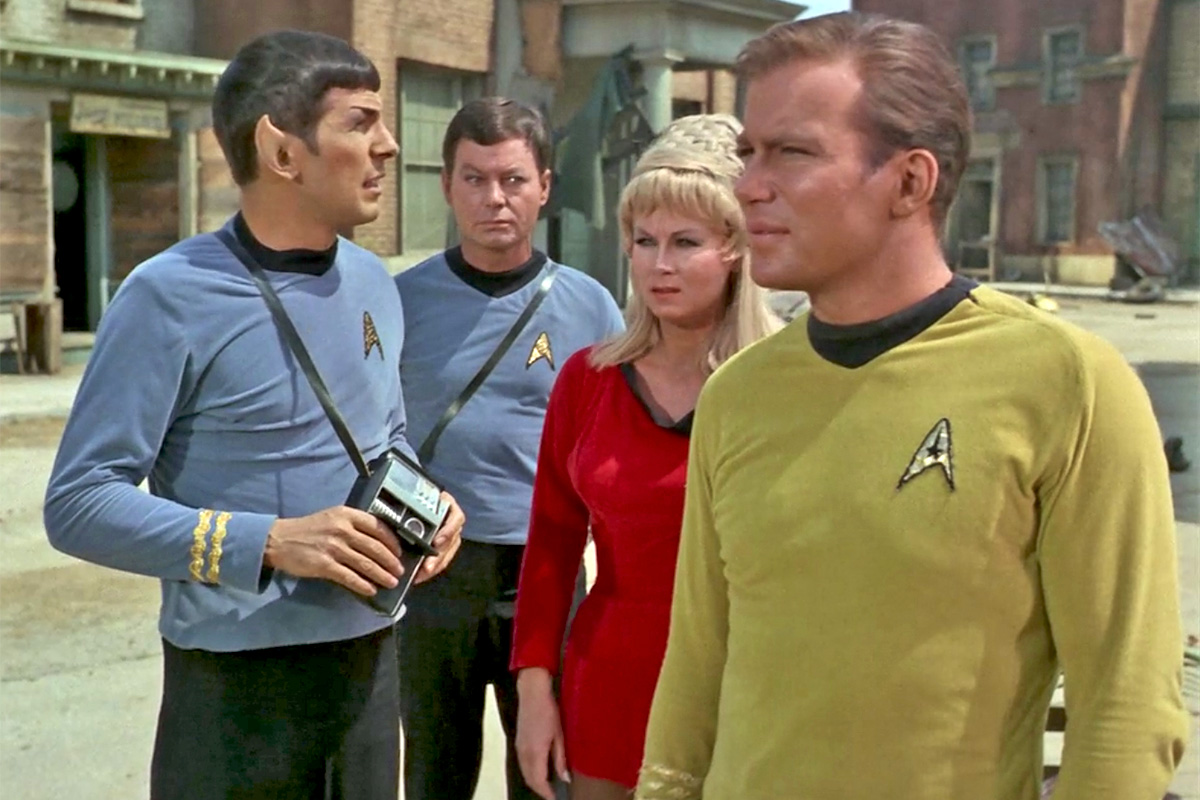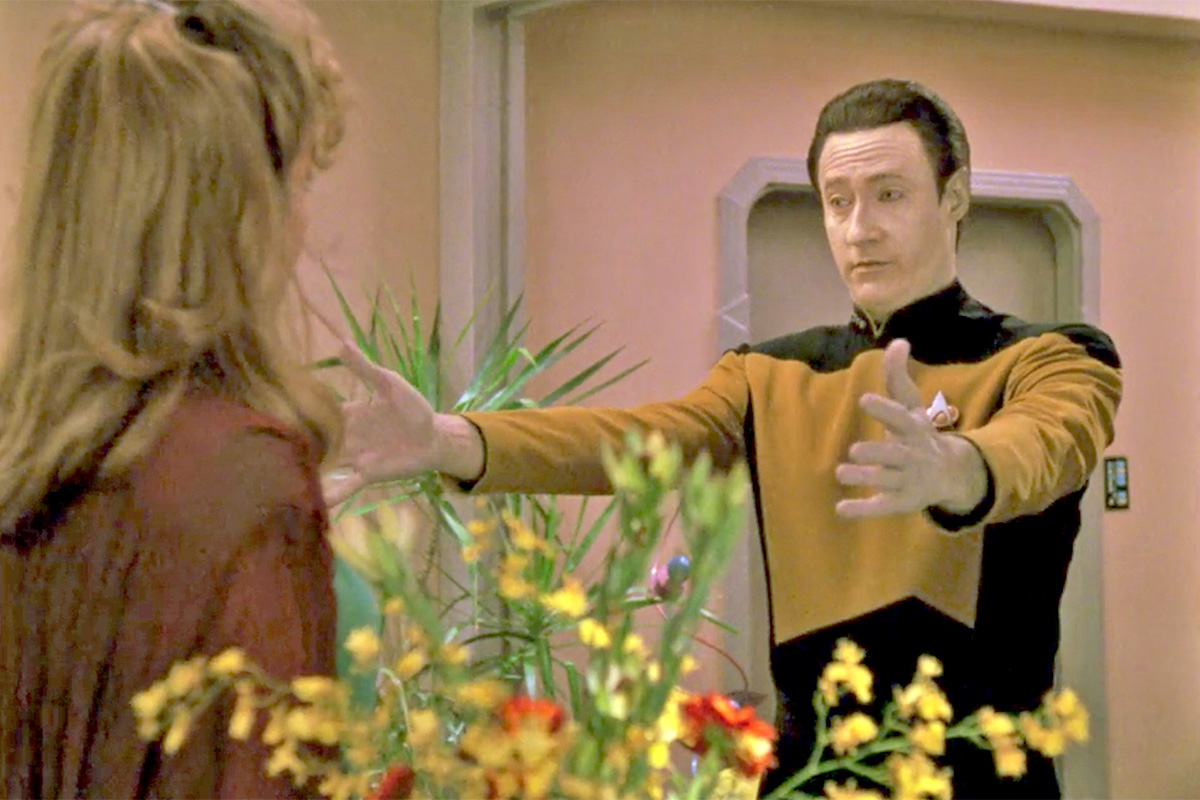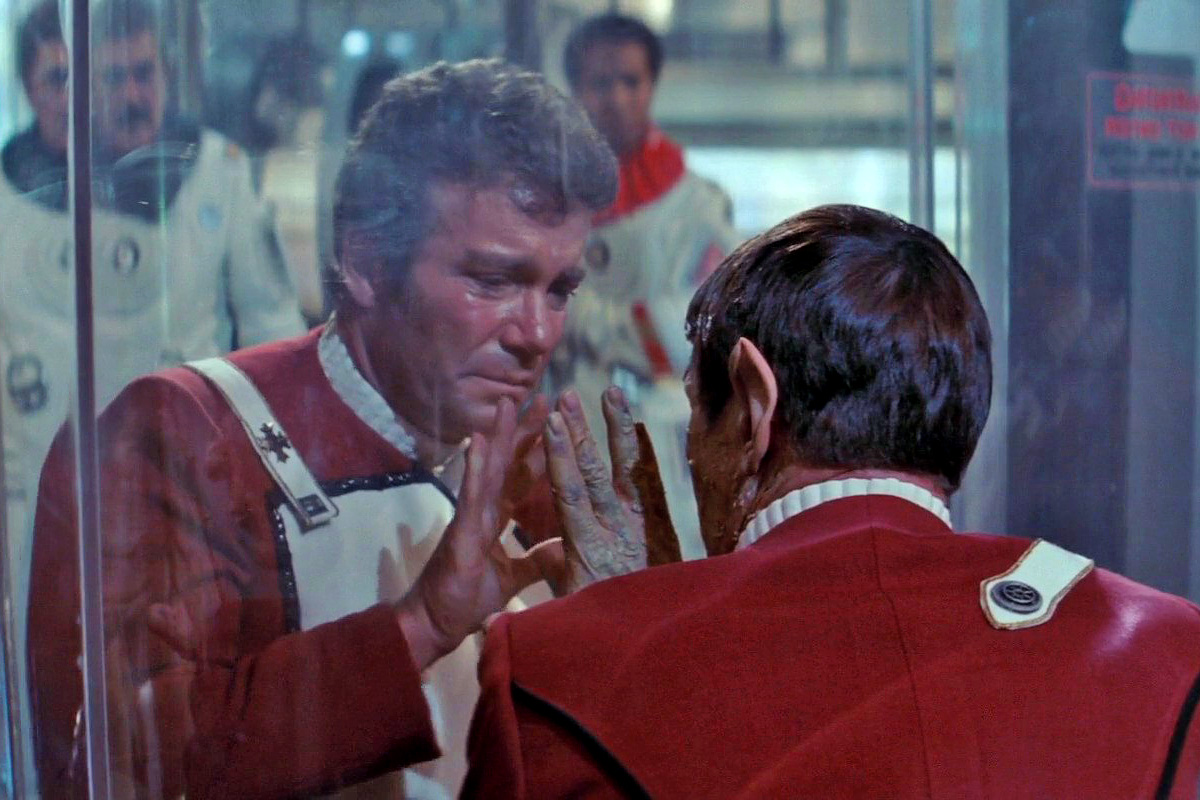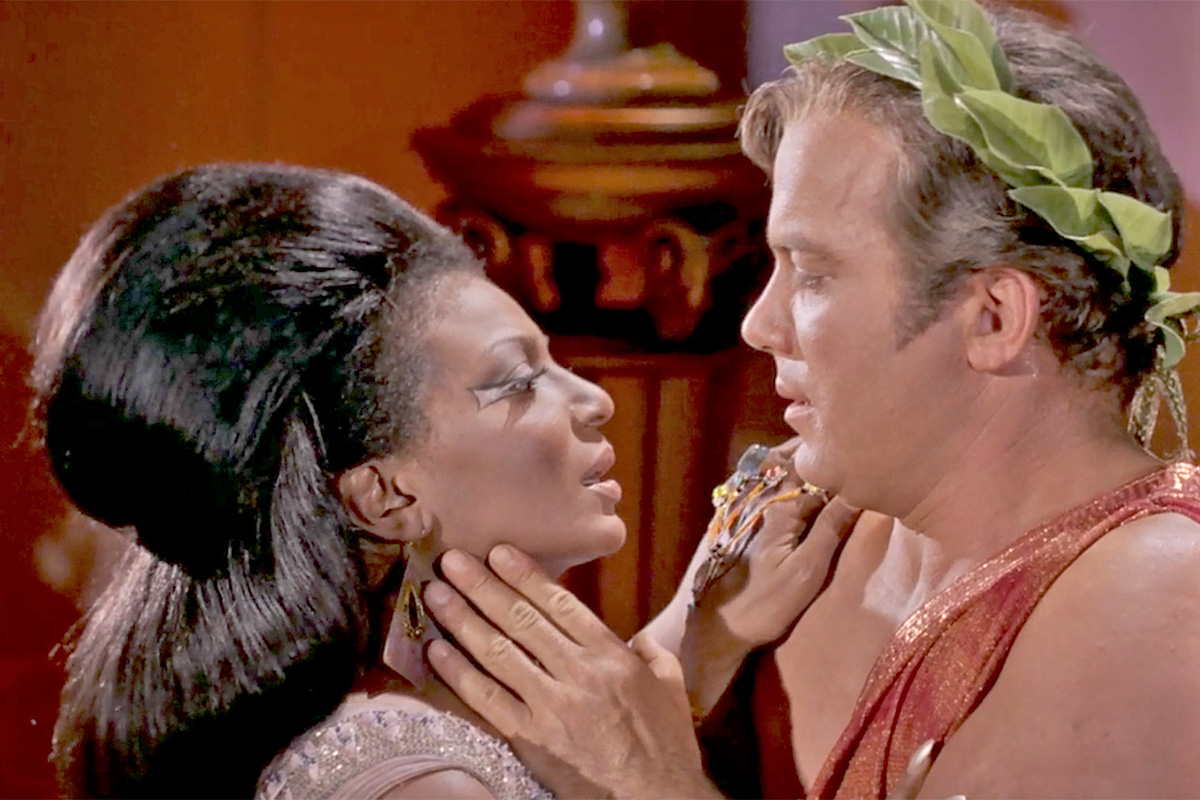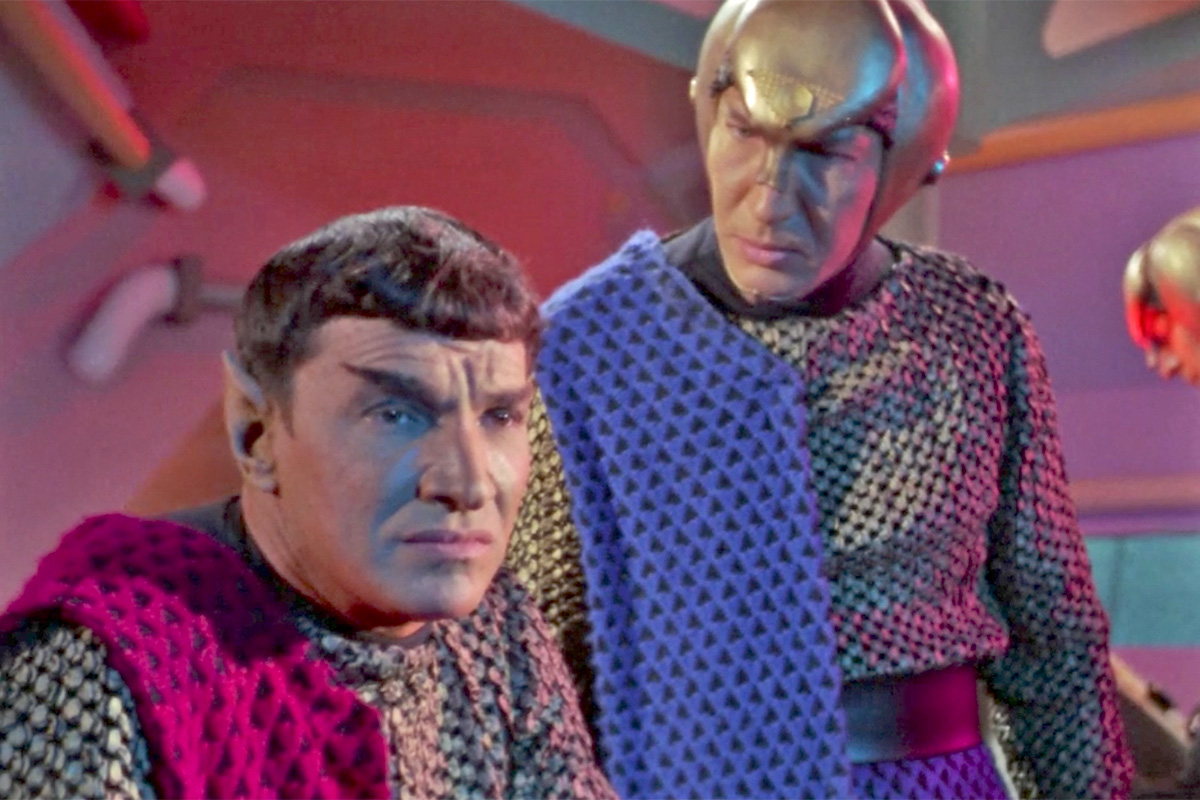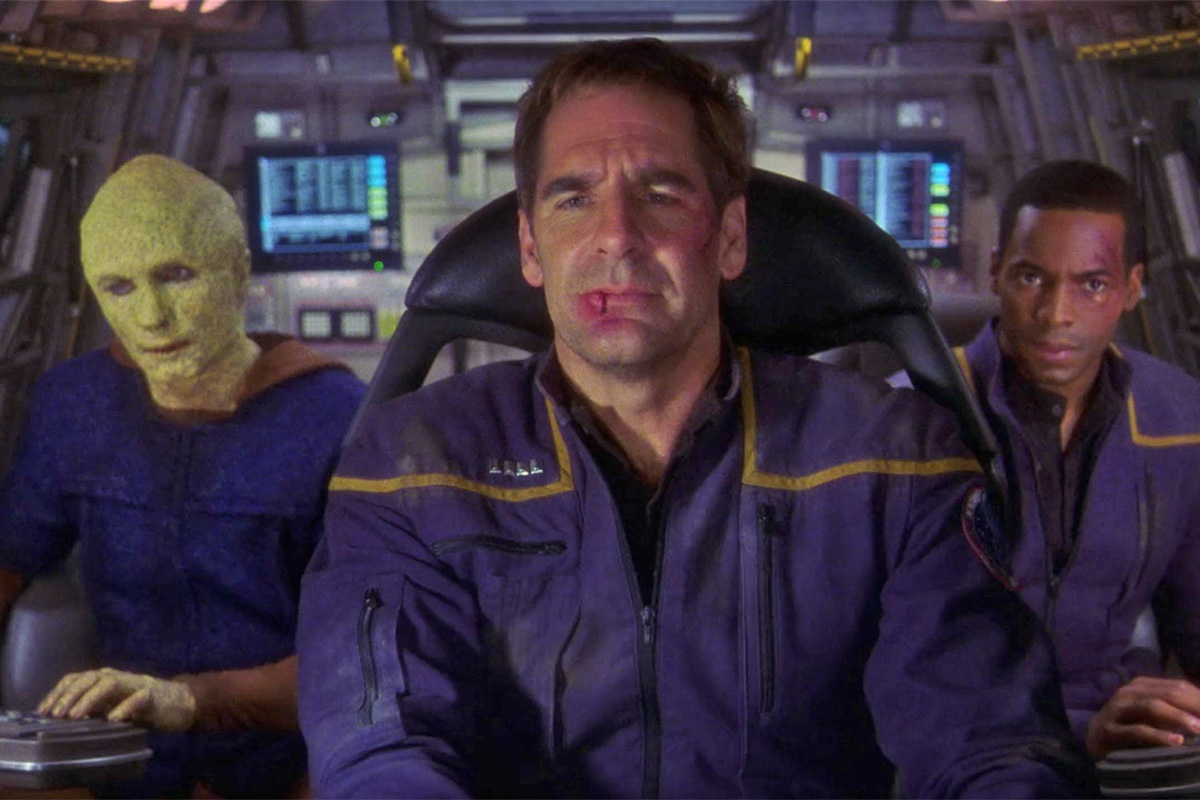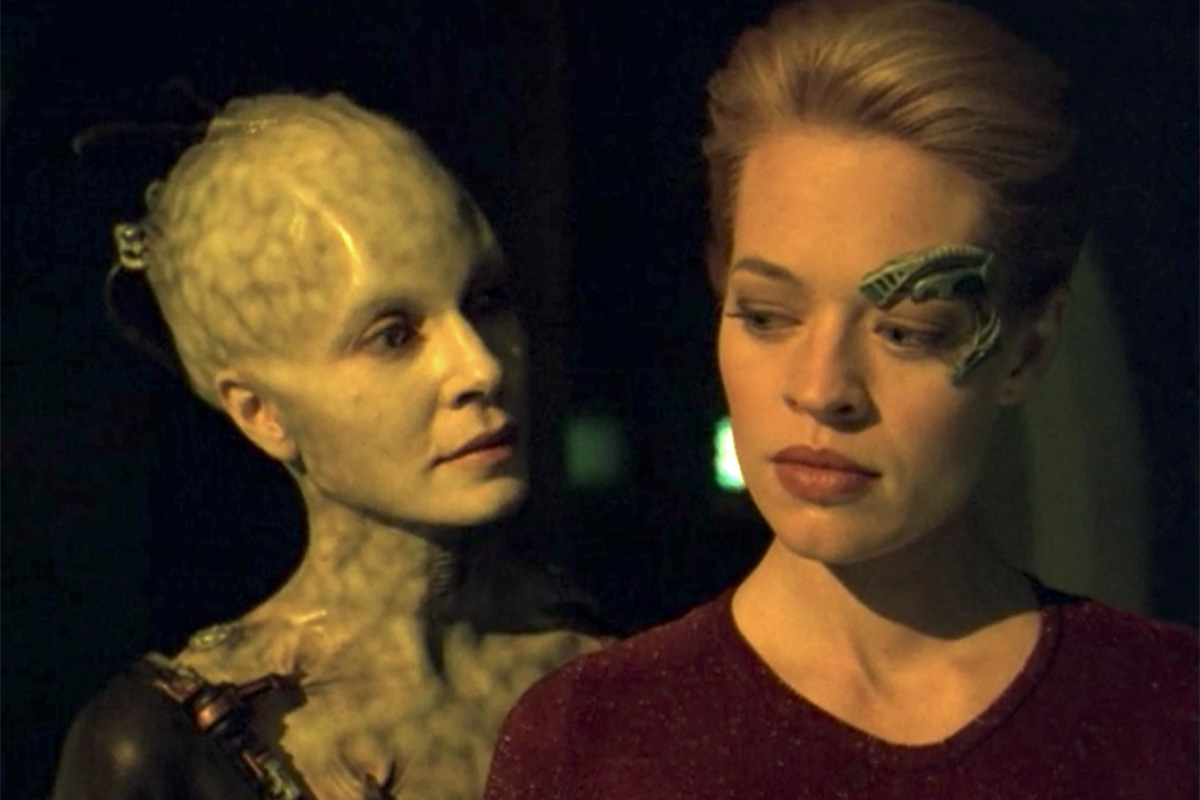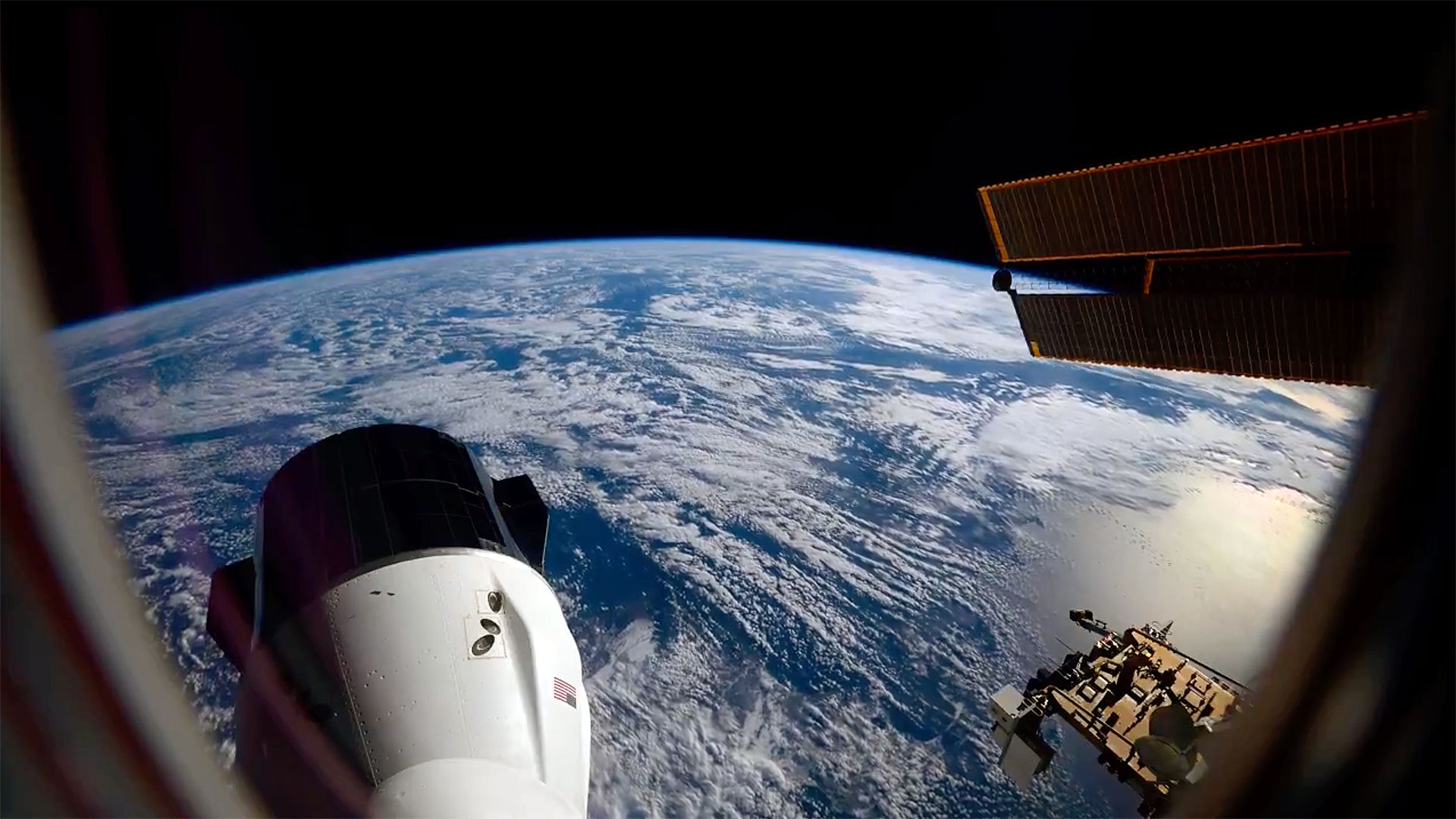7 Lessons 'Star Trek' Taught Us About Life, Leadership and Diversity
Never Stop Exploring
"Star Trek" is, at its roots, an exploratory series. Whether the crew is exploring a sector by choice, or stranded due to unfortunate accident (ahem, "Voyager"), their primary focus when tooling around the universe is looking for new things and cataloging them. As a whole, although there are exceptions, crews are respectful when meeting with aliens and, if the species happens to be less technologically advanced than themselves, they observe a "Prime Directive" of non-interference.
On the surface, this makes "Star Trek" sound like a boring series — a bunch of pacifists cataloging alien environments — but in reality, there is much more happening underneath the surface. Crews adapt over time and learn from their encounters with various species, sometimes even reflecting on how meeting other cultures makes them feel about their own species. Think about Data ("The Next Generation"), for example: an android who is always observing humans in his quest to become more human-like himself.
The Needs of the Many Outweigh the Needs of the Few
That line comes straight out of the moving "Star Trek II: The Wrath of Khan" (1982), which many fans consider to be the best "Star Trek" movie of all time. At the movie's end, Spock exposes himself to deadly radiation, and, while dying, delivers that line to an upset Captain James T. Kirk. While Spock's sacrifice is the most famous, there are many other examples of somebody giving up something to benefit others — and we're not just talking about giving up your life. [Abandon Ship! 'Star Trek' Loves to Destroy the Enterprise]
Think about the number of times that the Enterprise hears a distress call or sees a stranded ship. Usually, they want to rush to the rescue (even if it's to their own crew's detriment, such as being exposed to a nasty disease in "The Original Series" episode "The Naked Time," 1966). Crewmembers not only willingly give up their lives for others, but also give up career or life opportunities. For instance, in "The Next Generation" episode "Sins of the Father" (1990), Worf willingly accepts a traitor accusation on behalf of his family to stop civil war among the Klingons. Worf's decision essentially makes him an exile from his people.
Embrace Diversity
"Star Trek" broke barriers with each successive series, which is clear even when taking a quick glance at the main cast. "The Original Series" (1966-69) had a black woman, a Russian (during the Cold War) and an Asian man among the main cast, and is popularly cited as featuring the first interracial kiss. "The Next Generation" (1987-1994) had high female representation, and included episodes dealing with matters such as homosexuality and robot rights. Other series had milestones such as including several aliens in the main cast ("Deep Space Nine", 1993-1999), or featuring a female captain ("Star Trek: Voyager," 1995-2001).
One can argue that "Star Trek" had more leeway in portraying crews this way because it was a science fiction series, but its decisions to embrace diversity still caused some difficulties for cast members. Kate Mulgrew (who played Captain Kathryn Janeway on "Star Trek: Voyager") told a convention audience in 2017 that she was asked repeatedly for her character to have sex, something she felt shouldn't be necessary for a captain. As for the interracial kiss, some reports say that NBC never intended for the Deep South to see it — a decision that fortunately did not come to fruition.
Questions the Status Quo
"Star Trek" also wasn't afraid to poke holes in the politics and beliefs of our times. Series creator Gene Roddenberry famously wanted to portray a utopian future where even the crew members did not argue among one another. While "Star Trek" eventually did allow crews to bicker among themselves for dramatic purposes, there are several episodes in every series that challenge viewers to look at their culture and ask themselves what is truly right.
A few examples: "Balance of Terror," 1966 ("The Original Series") was an episode ostensibly about an encounter with the Romulans, but in reality it was showing that the Cold War between the United States and Russia was probably a futile exercise. "Terra Prime," 2005 ("Enterprise") dealt with a terrorist group that created a Vulcan/human hybrid baby to try to incite conflict among Earthlings and Starfleet. "Past Tense, Parts 1 and 2," 1995 ("Deep Space Nine") was a thinly veiled look at class conflict.
Lead Boldly, but Also Listen
Every "Star Trek" series has a captain with his or her own distinctive personality; while hard to capture a person in a word, some adjectives to describe each captain could be bravado (Kirk), strategy (Picard), skepticism (Sisko), sarcasm (Janeway) and dutifulness (Archer). Whatever their personality, however, each of these captains certainly occupied the chair with dignity and class — but still willing to admit they needed the help of others to do the job correctly.
For example: In the episode "Detained," 2002 ("Enterprise"), Archer is held captive in a prison and although he has an escape plan, it requires the efforts of the entire crew to get him out of there. "Deep Space Nine" episode "The Visitor," (1995) sees Sisko have a new appreciation of his son after, in an alternate timeline, his son makes a moving sacrifice to help Sisko.
In Every Decision, Use Logic and Emotion
"The Original Series" probably had the best-meshing top three crew members: Captain James T. Kirk, Science Officer Spock and Dr. Leonard McCoy, the crew's doctor. Spock was an extremely logical Vulcan alien, while McCoy was an extremely emotional doctor (who often complained that Kirk was asking him to do things outside of his expertise.)
When Kirk made a decision, he would often listen to both sides before deciding what to do. Kirk was also a brilliant strategist, in that he wouldn't just take one side or the other, but would combine logic and emotion to solve a problem. (Or sometimes Kirk would just go his own way anyway, but that was Kirk.)
Learn from Entities That are Better Than You
We see this lesson over and over again in the "Star Trek" series simply because there are different specialties among each crew. Uhura ("The Original Series") is famously gifted in linguistics, for example, so her abilities to interpret other languages are respected and used by her crewmates. But in a strategy sense, there is perhaps no better example of improving from your enemies than the various crews' encounters with the Borg. [How 'Star Trek' Technology Works (Infographic)]
The Borg is an enemy that assimilates all aliens it meets into a collective, and they're able to do so because their ships are powerful and their hive mind is good at strategy. But despite their advantage, the humans are able to overcome them on several occasions — sometimes by allying with members of the enemy themselves. For example, the character Seven of Nine ("Voyager") is temporarily re-assimilated back into the Borg during the two-part episode "Dark Frontier" (1999), but uses her insider knowledge to help other crew members escape while placating the Borg queen. In the episode "Collective" (2000), Seven extracts information from the Borg to get the true names of some assimilated children.
Breaking space news, the latest updates on rocket launches, skywatching events and more!
Life Lessons
Below are seven of the many lessons that "Star Trek" taught us, in honor of the new series "Star Trek Discovery" making its debut Sept. 24. May the series, coming in the 51st year of the "Star Trek" franchise, live long and prosper!

Elizabeth Howell (she/her), Ph.D., was a staff writer in the spaceflight channel between 2022 and 2024 specializing in Canadian space news. She was contributing writer for Space.com for 10 years from 2012 to 2024. Elizabeth's reporting includes multiple exclusives with the White House, leading world coverage about a lost-and-found space tomato on the International Space Station, witnessing five human spaceflight launches on two continents, flying parabolic, working inside a spacesuit, and participating in a simulated Mars mission. Her latest book, "Why Am I Taller?" (ECW Press, 2022) is co-written with astronaut Dave Williams.
